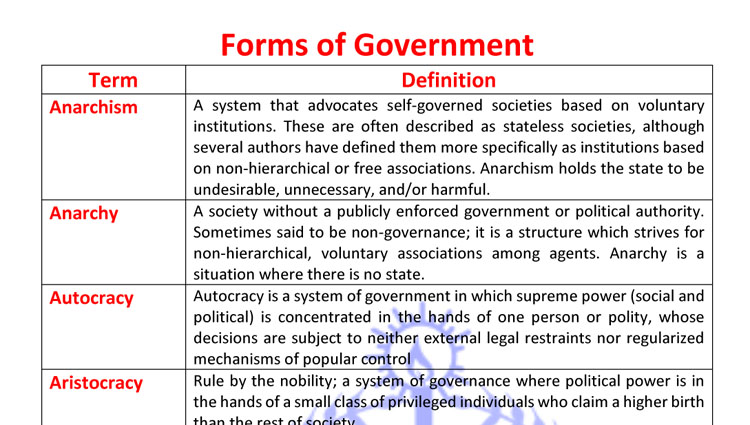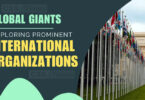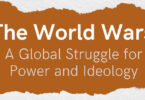Forms of Government (World General Knowledge)
Anarchism
A system that advocates self-governed societies based on voluntary institutions. These are often described as stateless societies, although several authors have defined them more specifically as institutions based on non-hierarchical or free associations. Anarchism holds the state to be undesirable, unnecessary, and/or harmful.
Anarchy
A society without a publicly enforced government or political authority. Sometimes said to be non-governance; it is a structure which strives for non-hierarchical, voluntary associations among agents. Anarchy is a situation where there is no state.
Autocracy
Autocracy is a system of government in which supreme power (social and political) is concentrated in the hands of one person or polity, whose decisions are subject to neither external legal restraints nor regularized mechanisms of popular control
Check also: World General Knowledge MCQs
Aristocracy
Rule by the nobility; a system of governance where political power is in the hands of a small class of privileged individuals who claim a higher birth than the rest of society.
Anocracy
A regime type where power is not vested in public institutions (as in a normal democracy) but spread amongst elite groups who are constantly competing with each other for power.
Adhocracy
Rule by a government based on relatively disorganised principles and institutions as compared to a bureaucracy, its exact opposite.
Absolute monarchy
A traditional and historical system where the monarch exercises ultimate governing authority as head of state and head of government. Many nations of Europe during the Middle Ages were absolute monarchies.
Band society
Rule by a government based on small (usually family) unit with a semi-informal hierarchy, with strongest (either physical strength or strength of character) as leader. Very much like a pack seen in other animals, such as wolves.
Bureaucracy
Rule by a system of governance with many bureaus, administrators, and petty officials
Bankocracy
Rule by banks; a system of governance with excessive power or influence of banks and other financial authorities on public policy-making.
Corporatocracy
Rule by corporations; a system of governance where an economic and political system is controlled by corporations or corporate interests. Its use is generally pejorative.
Cybersynacy
Ruled by a data fed group of secluded individuals that regulates aspects of public and private life using data feeds and technology having no interactivity with the citizens but using “facts only” to decide direction.
Confederation
A confederation (also known as a confederacy or league) is a union of sovereign states, united for purposes of common action often in relation to other states. Usually created by a treaty, confederations of states tend to be established for dealing with critical issues, such as defense, foreign relations, internal trade or currency, with the general government being required to provide support for all its members.
Civilian Dictatorship
A dictatorship where power resides in the hands of one single person or polity. That person may be, for example, an absolute monarch or a dictator, but can also be an elected president. Examples of dictators include: Adolf Hitler, Josef Stalin, Mao Zedong, Idi Amin, Muammar Gaddafi, and Gamal Abdul Nasser.
Constitutional monarchy
Constitutional monarchy also called parliamentary Monarchy, the monarch’s powers are limited by law or by a formal constitution, usually assigning them to those of the head of state. Many modern developed countries, including the United Kingdom, Norway, Netherlands, Australia, Canada, and Japan, are constitutional monarchy systems.
Crowned republic
A form of government where the monarch (and family) is an official ceremonial entity with no political power. The royal family and the monarch are intended to represent the country and may perform speeches or attend an important ceremonial events as a symbolical guide to the people, but hold no actual power in decision-making, appointments, et cetera.
Constitutional Republic
Republics where there is rule by a government whose powers are limited by law or a formal constitution, and chosen by a vote amongst at least some sections of the populace (Ancient Sparta was in its own terms a republic, though most inhabitants were disenfranchised). Examples include the United States, South Africa, India, etc.
Colonialism
A system in which a native group (or their lands and resources) is subjugated by an external political power for their own economic and/or political benefit.
Capitalism
A system in which the means of production (machines, tools, factories, etc.) are owned by private individuals, workers then negotiate with those individuals to use those means of production in exchange for a portion of what they produce, usually in the form of capital (money).
Communism
A socialist system in which the means of production are commonly owned (either by the people directly, through the commune, or by a communist state or society), and production is undertaken for use, rather than for profit.
Corporate republic
Theoretical form of government occasionally hypothesised in works of science fiction, though some historical nations such as medieval Florence might be said to have been governed as corporate republics.
Cyberocracy
Theoretical form of government that rules by the effective use of information
Commune
An intentional community of people living together, sharing common interests, often having common values and beliefs, as well as shared property, possessions, resources, and, in some communes, work, income or assets.
City-State
A sovereign state, also described as a type of small independent country, that usually consists of a single city and its dependent territories. Examples: Singapore, Monaco, and Vatican City. City states are also sometimes called micro-states
Distributism
A variant of capitalism which views widespread property ownership as fundamental right; the means of production are spread as widely as possible rather than being centralized under the control of the state, or a few individuals/corporations (as in what proponents of distributism call “crony capitalism”)
Despotism
A system in which the laws and resources of a nation are controlled by one individual, usually a monarch or dictator, who holds absolute political power. Examples include the pharaohs of Ancient Egypt and the Roman emperors.
Democracy
Democracy, meaning “rule of the people”, is a system of government in which the citizens exercise power directly or elect representatives from among themselves to form a governing body, such as a parliament. Democracy is sometimes referred to as “rule of the majority”.
Direct democracy
Government in which the people represent themselves and vote directly for new laws and public policy.
Demarchy
Government in which the state is governed by randomly selected decision makers who have been selected by sortition (lot) from a broadly inclusive pool of eligible citizens.
Democratic republic
Republics where the running of the country is considered a “public matter”, not a private concern or property of rulers, and where offices of states are subsequently, directly or indirectly, elected or appointed – rather than inherited – where all eligible citizens have an equal say in the local and national decisions that affect their lives.
Electocracy
Variant of democracy; where citizens are able to vote for their government but cannot participate directly in governmental decision making and where the government does not share any power.
Ergatocracy
Rule by the proletariat, the workers, or the working class. Examples of ergatocracy include communist revolutionaries and rebels which control most of society and create an alternative economy for people and workers. See Dictatorship of the proletariat.
Feudalism
A system of land ownership and duties common to medieval Europe. Under feudalism, all the land in a kingdom belonged to the king.
Federal republic
Republics that are a federal union of states or provinces Examples include United States, Argentina, Austria, Brazil, Germany, India, Mexico, Russia, and Switzerland.
Federation
A federation (also known as a federal state) is a political entity characterized by a union of partially self-governing states or regions under a central (federal) government.
Geniocracy
Rule by the intelligent; a system of governance where creativity, innovation, intelligence and wisdom are required for those who wish to govern. Comparable to noocracy.
Islamic Republic
Republics governed in accordance with Islamic law. Examples include Afghanistan, Iran, Mauritania, and Pakistan.
Kraterocracy
Rule by the strong; a system of governance where those who are strong enough to seize power through physical force, social maneuvering or political cunning.
Kritarchy
Rule by various judges, the kritarchs; a system of governance composed of law enforcement institutions in which the state and the legal systems are traditionally or constitutionally the same entity.
Kakistocracy
Rule by the stupid; a system of governance where the worst or least-qualified citizens govern or dictate policies.
Kleptocracy
Rule by thieves; a system of governance where its officials and the ruling class in general pursue personal wealth and political power at the expense of the wider population.
Liquid Democracy
Variant of democracy; government in which the people represent themselves or choose to temporary delegate their vote to another voter to vote for new laws and public policy.
Liberal democracy
A form of government in which representative democracy operates under the principles of liberalism.
Meritocracy
Rule by the meritorious; a system of governance where groups are selected on the basis of people’s ability, knowledge in a given area, and contributions to society.
Military Dictatorship
A dictatorship primarily enforced by the military. Military dictators are different from civilian dictators for a number of reasons: their motivations for seizing power, the institutions through which they organize their rule, and the ways in which they leave power..
Monarchy
A monarchy is a form of government in which a group, generally a family representing a dynasty, embodies the country’s national identity and its head, the monarch, exercises the role of sovereignty.
Magocracy
Rule by a government with the highest and main authority being either a magician, sage, sorcerer, wizard, witch, or some other magic user. This is often similar to a theocratic structured regime and is largely portrayed in fiction and fantasy genre categories.
Monarchism
A system in which the government is headed by an agreed upon head of the nobility who is known as the monarch, usually in the form of a king or emperor (but also less commonly a queen or empress).
Minarchism
A variant of capitalism which advocates for the State to exist solely to provide a very small number of services.
National Government
The government of a nation-state and is a characteristic of a unitary state. This is the same thing as a federal government which may have distinct powers at various levels authorized or delegated to it by its member states, though the adjective ‘central’ is sometimes used to describe it.
Netocracy
Rule by social connections; a term invented by the editorial board of the American technology magazine Wired in the early 1990s.
Nepotocracy
Rule by nephews; favouritism granted to relatives regardless of merit; a system of governance in which importance is given to the relatives of those already in power, like a nephew (where the word comes from).
Nomocracy
Rule by a government under the sovereignty of rational laws and civic right as opposed to one under theocratic systems of government. In a nomocracy, ultimate and final authority (sovereignty) exists in the law.
Noocracy
Rule by the wise; a system of governance in which decision making is in the hands of philosophers. (advocated by Plato)
Oligarchy
Oligarchy, meaning “rule of the few”, is a form of power structure in which power rests with a small number of people. These people might be distinguished by nobility, wealth, family ties, education or corporate, religious or military control.
Ochlocracy
Rule by the crowd; a system of governance where mob rule is government by mob or a mass of people, or the intimidation of legitimate authorities.
Particracy
Rule by a dominant political party (or parties).
Plutocracy
Rule by the wealthy; a system wherein governance is indebted to, dependent upon or heavily influenced by the desires of the rich.
Parliamentary republic
Republics, like Germany, India or Singapore, with an elected head of state, but where the head of state and head of government are kept separate with the head of government retaining most executive powers, or a head of state akin to a head of government, elected by a parliament.
Presidential Republic
Republics with an elected head of state, where the head of state is also the head of the government. Examples include United States, Mexico, Brazil, and Indonesia.
People’s republic
Republics that include countries like China and Vietnam that are de jure governed for and by the people, but with no direct elections. The term People’s Republic is used to differentiate themselves from the earlier republic of their countries before the people’s revolution, like the Republic of China.
Republic
A republic is a form of government in which the country is considered a “public matter”, not the private concern or property of the rulers.
Representative democracy
Variant of democracy; wherein the people or citizens of a country elect representatives to create and implement public policy in place of active participation by the people.
Social democracy
Social democracy rejects the “either/or” phobiocratic/polarization interpretation of capitalism versus socialism. It claims that fostering a progressive evolution of capitalism will gradually result in the evolution of capitalist economy into socialist economy. Social democracy argues that all citizens should be legally entitled to certain social rights.
Stratocracy
Rule by military service; a system of governance composed of military government in which the state and the military are traditionally or constitutionally the same entity. Citizens with mandatory or voluntary active military service or who have been honorably discharged have the right to govern.
Socialism
A system in which workers, democratically and/or socially own the means of production. The economic framework may be decentralized and self-managed in autonomous economic units, as in libertarian systems, or centrally planned, as in authoritarian systems.
Tribalism
A system based on a small complex society of varying degrees of centralisation that is led by an individual known as a chief.
Check Also: National Symbols of Pakistan
Totalitarianism
A system in which the land and resources of a nation are controlled by a centralised authoritarian state that holds absolute political power, usually under a dictatorship or single political party. Examples include the Soviet Union and Nazi Germany.
Totalitarian democracy
Variant of democracy; refers to a system of government in which lawfully elected representatives maintain the integrity of a nation state whose citizens, while granted the right to vote, have little or no participation in the decision-making process of the government.
Timocracy
Rule by the honourable; a system of governance ruled by honorable citizens and property owners. Socrates defines a timocracy as a government ruled by people who love honour and are selected according to the degree of honour they hold in society.
Technocracy
Rule by the educated or technical experts; a system of governance where people who are skilled or proficient govern in their respective areas of expertise in technology would be in control of all decision making.
Theocracy
Rule by a religious elite; a system of governance composed of religious institutions in which the state and the church are traditionally or constitutionally the same entity.
Uniocracy
Ruled by a singularity of all human minds connected via some form of technical or non-technical telepathy acting as a form of super computer to make decisions based on shared patterned experiences to deliver fair and accurate decisions to problems as they arrive.
Unitary State
A unitary state is a state governed as a single power in which the central government is ultimately supreme and any administrative divisions (sub-national units) exercise only the powers that the central government chooses to delegate. The majority of states in the world have a unitary system of government. Of the 193 UN member states, 165 are governed as unitary states.







